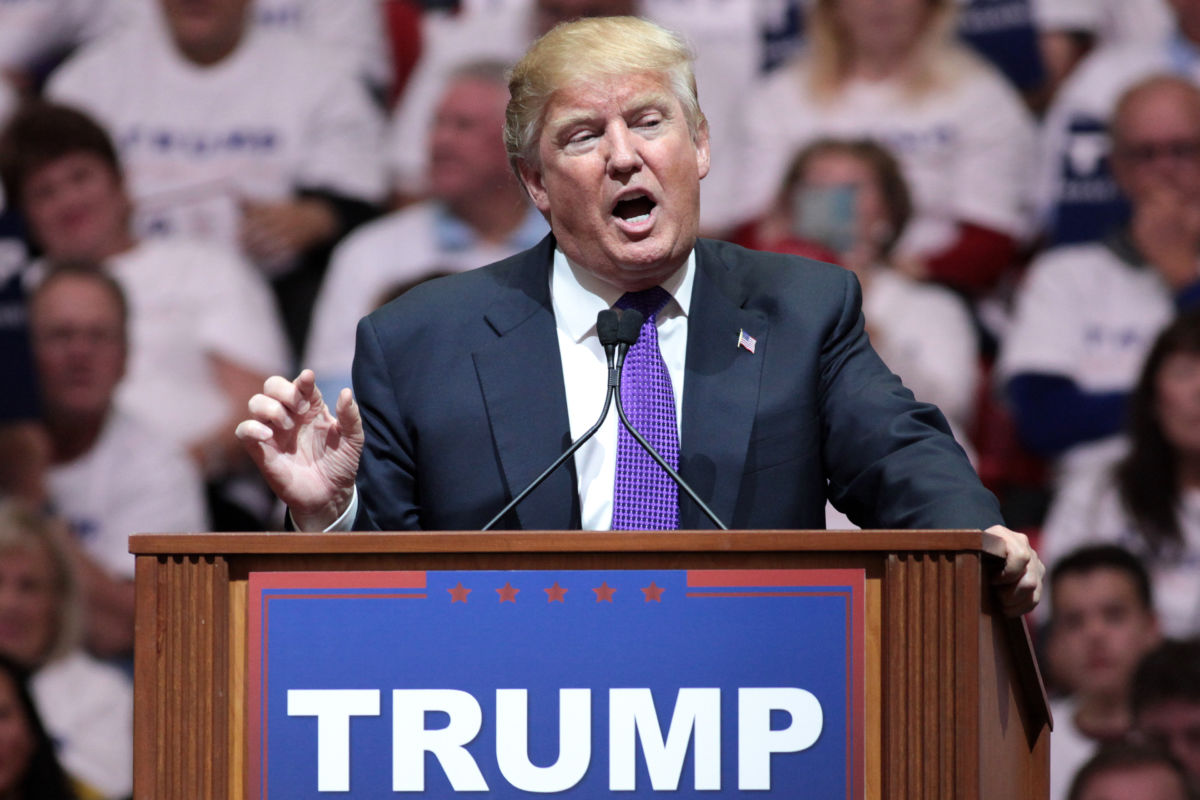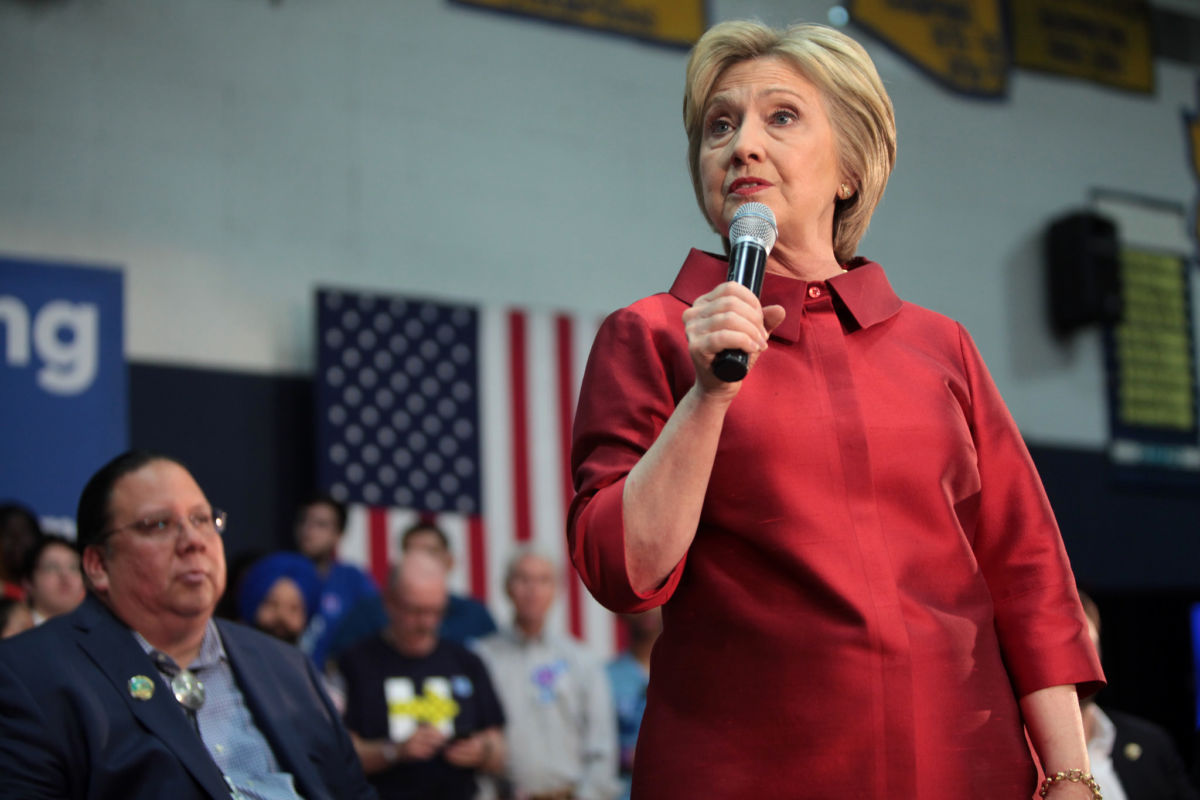Hillary Clinton and Donald Trump have found plenty to talk about in two testy, nationally televised debates.
But K-12 hasn’t made its way through the noise.
And there’s no guarantee Wednesday night’s third and final debate will be any different.
So, if the two major party candidates were forced to debate K-12 topics, what would it sound like? To get a sense of how a K-12 debate might play out, Idaho Education News gleaned comments from the candidates’ websites and media interviews.
Question: What letter grade would you give the nation’s schools?

Donald Trump, Republican: Based on Trump’s website, you could expect him to grade the K-12 system harshly. His website is long with talking points that suggest Americans aren’t getting their money’s worth for their $620 billion investment in K-12. Twenty-seven nations outperformed the U.S. on the math section of the Program for International Student Assessment exam, and U.S. students ranked No. 18 on the reading portion of PISA.
A Trump talking point, from his website: “We spend more per student than almost any other major country in the world. Yet, our students perform near the bottom of the pack for major large advanced countries.”

Hillary Clinton, Democrat: Here, you might expect Clinton to talk about bridging achievement gaps in public schools — and her work to address equity issues. She might even bring up a topic that might make some education stakeholders’ eyes twitch: the unpopular No Child Left Behind education law. On Clinton’s campaign website, she says she worked in the U.S. Senate to help shape No Child Left Behind, “with the hope that it would bring needed resources and real accountability to improve educational opportunities for our most disadvantaged students.”
A Clinton talking point, from March 10: “Education should be the great door opener, and yet we know it often doesn’t turn out that way. I think every child in this country deserves a good teacher in a good school, regardless of the ZIP code you live in.”
Question: Do you support an expansion of charter schools?
Clinton: A touchy topic for Clinton. In July, she was booed during the National Education Association’s annual conference after making pro-charter remarks. In response to a recent Washington Post questionnaire, Clinton said she opposes for-profit charter schools, but believes public charters have a place in the K-12 portfolio. “Quality public charter schools can provide parents with real choices for their children. In fact, many of the country’s best public charter schools are opening doors to opportunity for disadvantaged students,” Clinton told the Post.
Trump: A focal point in Trump’s comments on K-12. “School choice is the civil rights issue of our time,” Trump says on his website.
In a detailed rundown of Trump’s education comments, the Cambridge, Mass.-based ontheissues.org cites Trump’s 2015 book, “Crippled America.” “Competition is why I’m very much in favor of school choice. Let schools compete for kids. I guarantee that if you forced schools to get better or close because parents didn’t want to enroll their kids there, they would get better. Those schools that weren’t good enough to attract students would close, and that’s a good thing.”
Here, you could probably expect Trump to throw a jab at Clinton, charging she is opposed to school choice because she has the endorsement of teachers’ unions. (Clinton has endorsements from the NEA and the American Federation of Teachers.)
Clinton: If she has the chance to work in a one-sentence barb, she might quote AFT President Randi Weingarten’s critique from the Sept. 26 presidential debate: “Donald Trump is a reality star divorced from reality.”
Trump: If he were to get the last word on the topic, it might sound something like what he said during a Sept. 8 speech in Cleveland. “(Schools of choice would) cater to the needs of the individual student and family – not the needs of the teachers’ union. … The current government monopoly, while great for the bureaucrats, has utterly failed too many students.”
Question: Most states are using their own variation of Common Core standards in math and English language arts. Do you support these standards?
Trump: From the start of the Republican nomination process, Trump sought to make hay on the Common Core controversy — handcuffing the standards to Jeb Bush, the former Florida governor who was once considered the GOP’s nominee in waiting. Said Trump in June 2015: “Common Core is a disaster. Bush is totally in favor of Common Core. I don’t see how he can possibly get the nomination. He’s weak on immigration. He’s in favor of Common Core. How the hell can you vote for this guy? You just can’t do it. We have to end — education has to be local.” (Source: ontheissues.org)
While Trump publicly dismissed running mate Mike Pence’s views on Syria during the Oct. 10 debate, the two share common ground on Common Core. Trump could play to his base here — pointing out that as Indiana governor, Pence presided over a Common Core repeal, the first in the nation.
Clinton: Her position on Common Core is more nuanced. In April 2015, she decried the way critics politicized the standards. “It’s very painful because the Common Core started off as a nonpartisan effort.” (Source: ontheissues.org’s analysis of Clinton’s education comments). In the Washington Post questionnaire, she called Common Core a laudable effort — while criticizing the rollout and the emphasis on tests aligned to the new standards.
This question could allow Clinton an opening to throw some shade at Trump — and his pledge to repeal Common Core on his first day on the job. “There’s only one problem with that: he can’t,” Clinton said in the Post questionnaire. “The Common Core was a state-led effort, and states are completely free to adopt or eliminate the standards. .. If you want to improve education in America, you need to actually understand how it works.”
Question: What should be the federal government’s role in supporting local schools?
Here’s where we get down to dollars — with both candidates.
Clinton: Clinton has proposed several federally funded initiatives: expanded federal funding to replace deteriorating schools and upgrade broadband and science labs in aging schools; a federal computer science initiative; and a $2 billion plan to break the “school-to-prison” pipeline by supporting schools that get rid of “overly punitive” discipline policies.
Trump: On numerous occasions, Trump has said he wants to cut the U.S. Department of Education. But he has also talked about shifting $20 billion of federal money into a school choice and voucher block grant program, focused on the 11 million students who are living in poverty. “Distribution of this grant will favor states that have private school choice, magnet schools and charter laws, encouraging them to participate,” Trump says on his website.
Trump hopes states would match the federal voucher initiative. (Important Idaho-centric note: The state Constitution forbids a voucher system.)
Clinton: If she got the last word on this topic, she’d likely say the Trump voucher plan would siphon public dollars away from the nation’s most vulnerable public schools. “On top of all that, private schools are not subject to the same accountability, teacher quality standards, and legal requirements as public schools,” Clinton told the Washington Post.
Learn more: The Education Writers Association sponsored an Aug. 30 panel in Washington, D.C., focused on education and the presidential race. Click here for the video.
